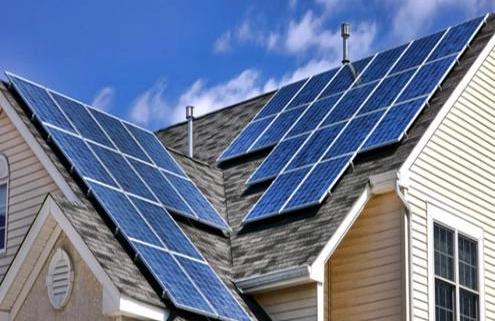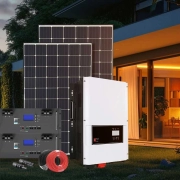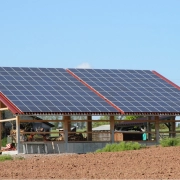Why Panel Efficiency Matters in an Off Grid Solar Power System?
In an off grid solar power system, panel efficiency determines overall performance and reliability. Whether you are using solar power for a remote off-grid cabin or installing energy storage for a residential solar system on a rural homestead, the efficiency of the PV panels will directly affect the amount of electricity you can get from limited sunlight. High-efficiency solar panels can convert a greater proportion of incident sunlight into usable electricity, thereby minimizing the floor space required for a given power output. This is particularly important in off-grid solar power systems, where space, budget and maintenance are often significant constraints when installing or purchasing.
High-efficiency solar panels can reduce the installation space required.
One of the primary reasons why panel efficiency plays a crucial role in off grid solar power systems is that users typically have limited installation area. Most off-grid users usually lack spacious rooftop or ground installation space. High-efficiency panels can have a conversion rate of more than 20%, allowing system designers to install fewer modules while achieving the same power generation as larger, less efficient arrays. For example, a 5 kW demand might require 20 250 W panels with 16% efficiency but only 17 295 W panels with 20% efficiency. This space-saving advantage not only reduces construction and installation costs but also often simplifies the permitting and zoning approval process. By optimizing module selection for maximum wattage per square foot, off-grid homeowners can ensure their off-grid solar power system fits on a moderate-sized cabin roof or small ground-mounted array without sacrificing power generation.
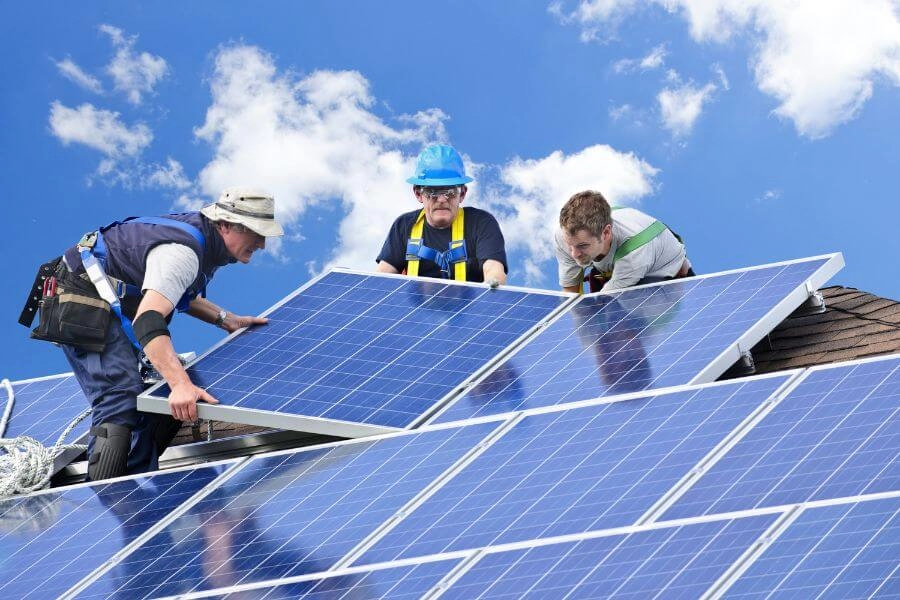
Boosting off grid solar power system performance in suboptimal conditions
Off-grid facilities often encounter less-than-ideal lighting conditions, such as partial shade from surrounding trees, low-angle sunlight in the early morning and late evening, and seasonal climate fluctuations. High-efficiency solar panels often use advanced cell technologies, such as passivated emitter rear cells, bifacial designs, or heterojunction contacts, which perform better in low-light or diffuse irradiation environments. For an off grid cabin nestled in the forest, these panels can generate 10-15% more power than traditional modules on cloudy days or in winter. Additionally, some high-efficiency modules feature half-cut cells or multi-busbar configurations, which reduce resistive losses and improve performance in partially shaded conditions. When every kilowatt-hour counts, the higher energy yield of high-efficiency panels ensures that off-grid solar power systems remain efficient year-round, reducing reliance on backup generators and extending limited sunshine hours into usable power.
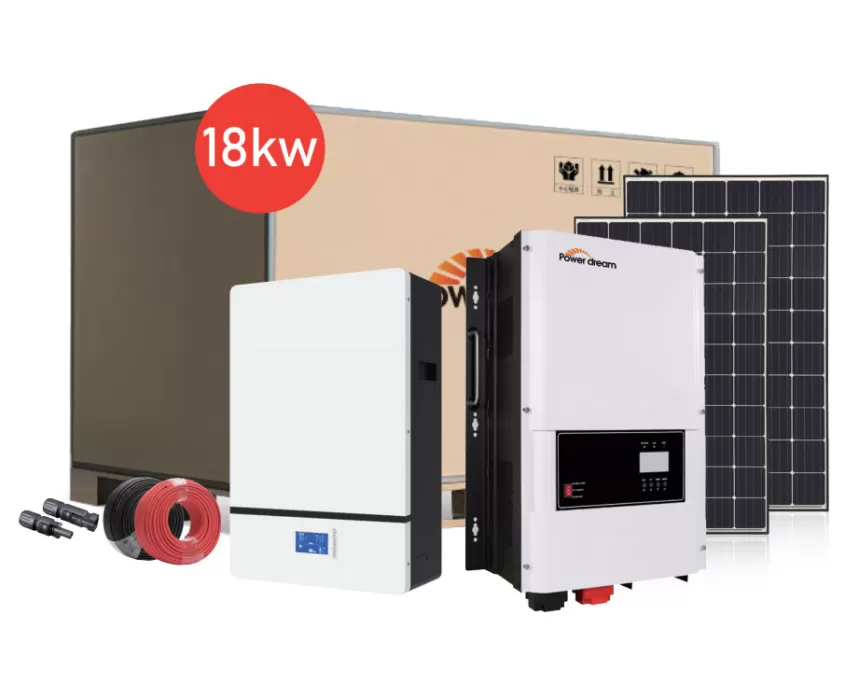
Reduced battery and energy storage size
High-efficiency solar panels benefit not only power generation but also storage requirements. In off grid solar power systems, the battery bank is sized to accommodate expected energy shortages, typically during nighttime or extended periods of low solar generation. By maximizing daily energy collection with high-efficiency modules, homeowners can reduce the size of the battery bank without compromising autonomy. For example, assume a home consumes 10 kWh per day and relies on 5 kWh of stored energy. A 300 W panel system with 20% efficiency might produce 4 kWh per day and require a 12 kWh battery bank to ensure three days of autonomy.
If a 350 W high-efficiency panel with 22% efficiency is used, the daily power generation can increase to 4.7 kWh, so a 10 kWh battery bank can meet the same load. When the battery capacity is reduced, it also means lower upfront costs, less maintenance and longer battery life, which are also key factors in energy storage for residential solar systems.
For the long-term value of off grid solar power systems
High-efficiency panels are generally more expensive than standard modules. When evaluating the life cycle economics of off grid solar power systems, the initial investment typically pays off over time. First, reducing the number of panels and the smaller mounting structure can lower system balance costs, including rack hardware, wiring, and labor. Second, fewer modules simplify installation and maintenance, reducing ongoing operating expenses. Third, increased energy production can speed up the payback period, especially when supplementing electricity with propane generators or alternative fuels. By producing more kilowatt-hours of electricity per watt of installed capacity, high-efficiency panels can give you better value per dollar. Finally, many high-quality modules come with multi-year performance warranties, enabling off-grid solar power systems to continue meeting energy needs reliably.
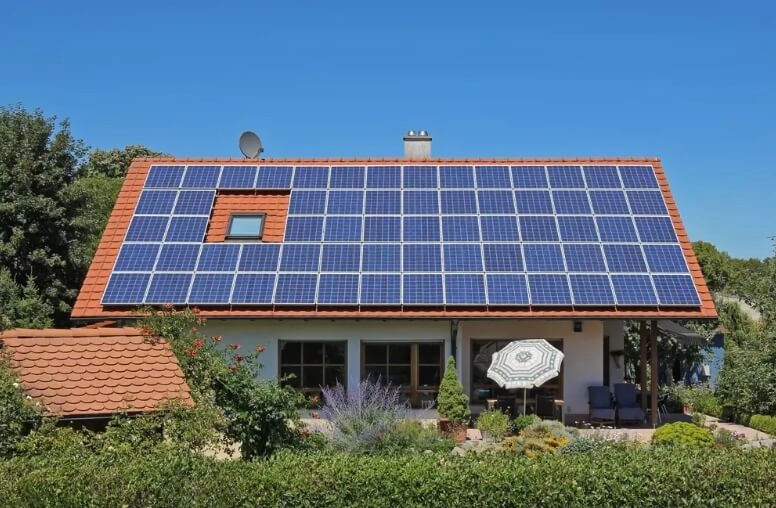
Integration with Intelligent Inverters and Controllers
Off grid solar power systems can be further optimized by pairing high-efficiency panels with advanced inverters and charge controllers. Modern MPPT charge controllers can dynamically adjust their operating voltage to extract maximum power from high-efficiency modules, especially in conditions of poor irradiance or partial shading. For energy storage in residential solar systems, these controllers ensure that the battery receives the highest possible charge, minimizing generator run time and preventing deep discharge. Additionally, innovative inverter technology leverages the higher panel voltage and optimized current input provided by high-efficiency panels. This system-level synergy maximizes energy throughput, reduces losses, and maintains a stable DC bus voltage, resulting in a balanced off grid solar power system that delivers peak performance even under varying load profiles.
Bringing reliable off grid power generation systems
In off grid solar power generation systems, panel efficiency is a key driver of overall system success, affecting space requirements, energy output, battery size, economic feasibility, reliability, and integration with other power electronics. High-efficiency battery modules—despite their typically higher initial cost—offer significant long-term benefits, including reduced land or roof footprint, improved low-light performance, minimized battery pack size, and long-term operational resilience of off grid solar power generation systems.

